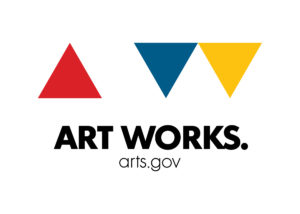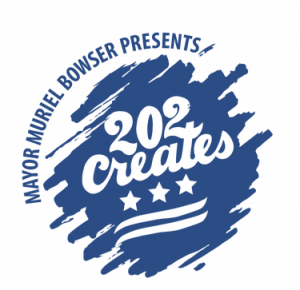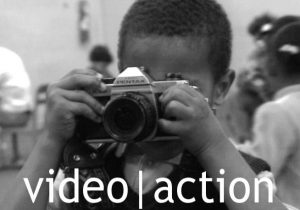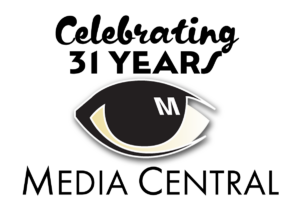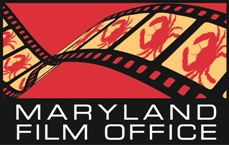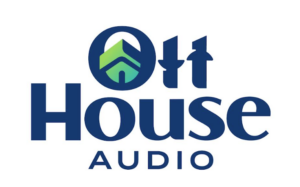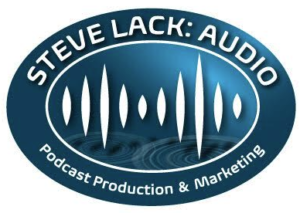by Kathy Dismukes
WIFV FEB 2018 WEDS ONE BLOG POST – WEB SERIES
WIFV’s Wednesday One on Wednesday, February 7 featured a lively presentation and discussion of the ins and outs of Web series. Special guests included Anthony Anderson, creator, executive producer, writer, director, and star of the acclaimed Web series, ANACOSTIA; and Joe Carabeo (joecarabeo.com), founder of Astray Productions and One-Shots.com, and director, cinematographer, and photographer of numerous multimedia endeavors.
The program was moderated by Ravenn McDowell (1st Assistant Director, EVERLASTING, and Associate Producer, MY JOURNEY IN AMERICA). Attendees were able to ask a variety of questions about starting, funding, and producing a Web series. Ravenn enjoyed the experience very much: “I had an incredible time moderating the discussion! The audience had great questions, and the panelists were so knowledgeable that I picked up a few gems for myself.”
In that spirit, what follows are advice, tips, and other gems from the discussion.
ADVANTAGES OF DOING A WEB SERIES:
- Ability to control your own voice and to create what you want to see, free from network restrictions and other filters
- Ensure more diverse voices are heard
- Opportunities for diverse casts and crew
- Opportunities for emerging writers
- A place for edgier content
CHARACTERISTICS OF A SUCCESSFUL WEB SERIES
You need a vision that will see you through what can be an arduous process. Focus on the story you have to tell. The story needs to be original and meaningful to you.
- Make sure your content is best suited to be produced as a web series. Don’t force it.
- You need to know what audiences you want to reach and then give them what they like.
- The length of each episode should be pretty consistent. It can be as short as 3 to 5 minutes or as long as 30; most pros recommend 5 to 10 minutes. Remember, today’s viewers bail after 3 minutes. But, some shows warrant longer episodes; for example, since ANACOSTIA is a soap opera, viewers know the plot and characters are complex. Most episodes are between 15 and 25 minutes long.
- Keep in mind what you don’t want to see. You don’t want low production value, bad sound, sleaziness, or too much of the same thing (a cops-and-drug-dealers procedural—again?).
PREPARING TO DO A WEB SERIES
The number of Web series has exploded in the last few years, and the bar is very high. Before you even start your planning for real:
- Read up on Web series. No Film School and IndieWire are some resources.
- Watch a lot of different Web series. Unfortunately, you can’t search YouTube for Web series specifically, but you can on Vimeo. Make sure you know what’s already out there in your subject area and/or genre and avoid duplicating existing content.
- A good way to survey what’s out there is to search #webseries on Instagram.
- Indiewire’s top series of 2017
- HuffPo did a list of addictive series in 2016, click here to read.
- Anderson recommended some good ones:
- Tough Love
- Giants
- Chef Julian
- LA Macabre
PRODUCING A WEB SERIES
- A web series takes vision, time, resources, knowledge, connections, and dedication. Join WIFV to learn and network.
- Some production and gear tips:
- The new models of Quasar LED lights are excellent and affordable.
- Zoom products are good for sound.
- Remember, your phone is an affordable camera that you can take wherever you go. Do a lot of filming, even if you won’t be the cameraperson for the series. Try filming different people, interiors and exteriors, times of day, and techniques to build your understanding of directing.
- DCTV is a great resource. You can take classes there and possibly even borrow equipment.
BUILDING VIEWERSHIP
- You have to be your own promoter and figure out how to continually engage your audience over time.
- Viewership is viral, so you need to use viral techniques. Here are some ideas:
- Make sure you know how to get to your audiences. Where are they reachable online? Use the social media channels your audience uses.
- Viewers are drawn by the opportunity to interact with you and your cast. Make sure you encourage comments, read comments, and respond to comments. That’s your community of fans. Thank people anyway when they say something negative.
- Share extras like behind-the-scenes footage to build interest.
- Investigate Google AdSense and Facebook Watch, as well as Facebook Ads.
- Enter festivals – FilmFreeway and WithoutaBox are good resources to find festivals that include Web series. More than 600 now do. In DC, the DC Web Fest is April 6-8 this year. Even if you don’t get into a festival, the fact that you entered one is news for your viewers. Encourage cast and crew to attend festivals to network with and support other media makers. Plus, some festival hosts are Emmy voters. Get it?
- Enter some of the many awards competitions that now exist, including Emmy, Webby, Vimeo, International Academy of Web Television, and Telly. The fact that you entered is still news for your viewers.
- Likewise, plan on supporting other series as well. Leave a comment on a series you like.
- By the way, more and more, Web series are being termed “digital series.” Right now, the two are interchangeable, but award programs and festivals increasingly seem to prefer the term digital series.
IDEAS FOR FUNDING A WEB SERIES
- Family, friends, crew, actors – everyone has a network of people who may be able to support your show financially.
- Fundraising parties
- Crowdfunding sites, especially Seed & Spark and Indiegogo
- Film and foundation grants
- Ask local grocery stores and Target-type stores for donations of food, drinks, and paper/plastic utensils for cast and crew. They all have community support programs and don’t require much paperwork.
- Corporate sponsorships and other corporate support, which can include product placement
- Executive Producer or Associate Producer credit for individual funders
- Walk-on role for funders
- Get on-camera endorsements from celebrities, social media stars, and/or community leaders.
- Offer several episodes for free, then charge a subscription fee.
- Urban One is also looking for content and is a possible source of corporate sponsorship.
DISTRIBUTING A WEB SERIES
- In addition to YouTube and Vimeo, there are many distribution options now:
- Carabeo recommends posting your series on your own website if you have one to help build your brand. You can actually post it on YouTube and just imbed the code on your website. That way it can be found two ways.
Good luck, and remember, membership in WIFV really is the fastest way to get there!
Anthony Anderson is the creator, executive producer, writer, director, and star of ANACOSTIA, the groundbreaking, Emmy-winning Web series that premiered in 2009 on YouTube. The soap opera chronicles the complex, exciting drama in the lives of the residents of this historic “east of the river” community. ANACOSTIA has racked up almost 750,000 views, has been seen in over 105 countries, garnered 132 awards and recognitions, and has been listed by JET Magazine as one of the Top 5 African American must-watch Web series. In 2017, Anderson was nominated for an Emmy in Outstanding Lead Actor in a Digital Daytime Drama Series category.
Joe Carabaeo is an award-winning multimedia director, cinematographer, podcaster, and comics writer. He has applied his directing and camera talents to projects for the Beach Boys, NBC, Epix, TLC, Bravo, Intel, NASA, and more. Through his company, Astray Productions, he has produced work that has been seen around the world in film festivals, magazines, and online, charting up more than 1 million views. Joe’s recent short films are posted on One-Shots.com. At the end of March, Joe is hosting the film festival component of Awesome Con at the DC Convention Center.
Kathy Dismukes is a consultant specializing in fundraising, partnership building, and community outreach for films and nonprofits. She has been a WIFV member since 2007 and served for two terms on the board of directors, including as VP of Development and Treasurer.




